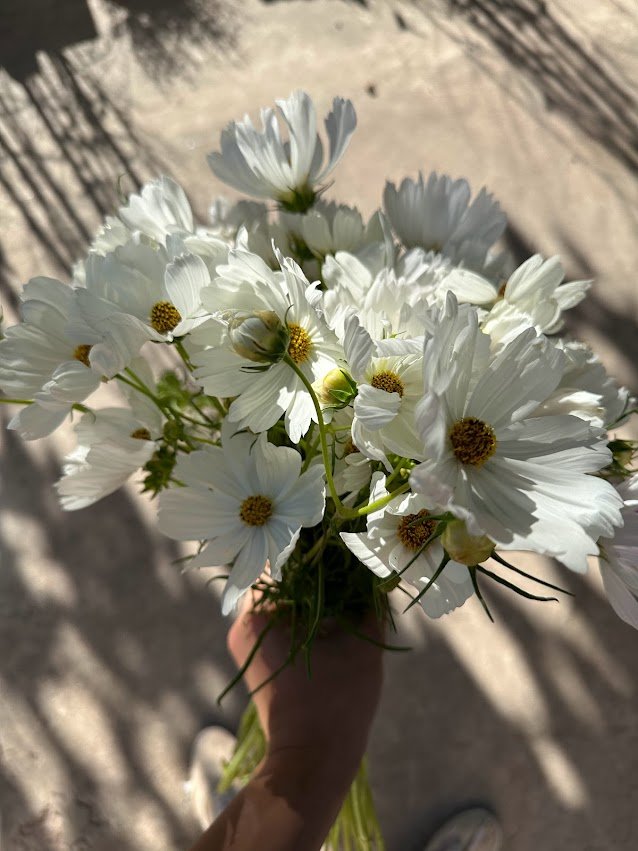Join the Small Scale Flower Farm Movement
I have a proposal for you.
I’ve already stated in this blog post that size doesn’t matter when it comes to flower farming (if you’re growing cut flowers to sell either wholesale or retail, you qualify). Small farm, large farm, each come with their own set of challenges, advantages and disadvantages, but all are aimed towards the same goal: growing and getting locally grown flowers out into the community.
To that extent, we all have our own role to play in the local flowers movement. And while as a small scale flower farm I may not be producing the same volume or having quite as much reach as the larger flower farms, I can still make a difference.
But then I had a thought.
What if small scale flower farmers weren’t at a disadvantage?
What if in fact they were at a specific advantage compared to larger growers?
“What advantage??” you might ask.
Conventional advice and wisdom is to always scale up. More beds, more varieties, more stems so you can sell and so you can expand your business. And yes, with most business models and most people, this is definitely the case.
In fact, I’ve been met with odd looks and questions in the past when I have mentioned how small our growing space and scale is.
Don’t get me wrong, there are disadvantages to growing small scale. An overall lower volume of flowers means that you can’t rely on conventional business models and advice in order to be successful. Slinging mixed bouquets at the farmer’s market will likely not be as profitable if you have a smaller amount, and selling to florists may not be a good model either especially if you’re not providing a consistent volume and high quality blooms, which can be difficult in a small space.
But there are advantages to being smaller scale. As I’ve also mentioned in this post, smaller scale means that there are fewer inputs - less water, less compost, less seeds and tubers you need to purchase, less overall time and energy needed to maintain your planting. It also ends up meaning less wasted product, less wasted time walking around, and the ability to be more effective by focusing your efforts on fewer plants.
And by being effective and efficient, it allows us to be able to run a very tidy and consolidated operation. It makes flower farming much more manageable, and in the long term will make flower farming more sustainable for us - no matter the market, the weather, or whatever life and nature throws at us.
Life certainly has challenged us over the past few years. Between the quarantine/lock down period, the mass cancellation of weddings then the sudden surge in weddings, the absolute lack of flowers and seeds and then an overabundance, then the economic turmoil and changes throughout the world, I feel that the world is going to continue to change at a rapid pace.
And with that rapid change, we as flower farmers have to keep pace. Although we’ve generally been ahead of the trend as flower farmers, there may come a day soon where we’re no longer ahead of trend - and may be behind it actually.
But as a small scale flower farmer, I think that we’re actually more prepared to face adversity and change head-on.
There’s a resiliency and strength in growing small scale. A challenge in a way - how can we still grow flowers, how can we continue to move forward and continue to create joy and beauty in the world through our growing and designs? How can we rework and re-plan our farms to meet the needs of our business, of our customers and community?
This is a challenge that I have taken to heart. And a challenge that I would like to extend to you, dear reader.
If so, you may like to join me in a small scale flower farming revolution.
I’d like to extend an invitation to you to join me. Whether you’re growing in your backyard or a small plot or even just a few beds and a hellstrip, we can unite together to continue to support the local flower movement and support each other.
We can continue to bring flowers to the people and provide beauty and joy to the people around us.
And after all, the world can always use more flowers - especially those that are locally grown with love and care. And in some ways, it almost seems like the world needs those flowers and that joy even more than ever.
If you’re working with a small scale flower farm (or thinking of starting one), here are some posts you might find useful:



